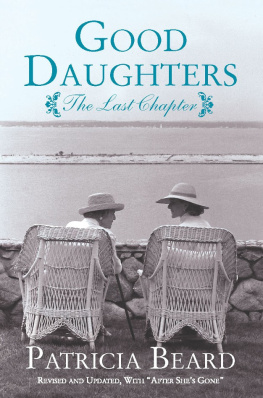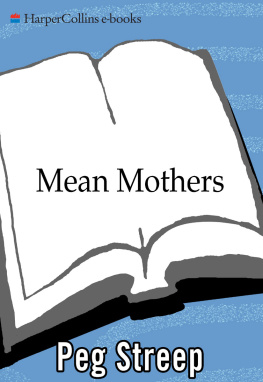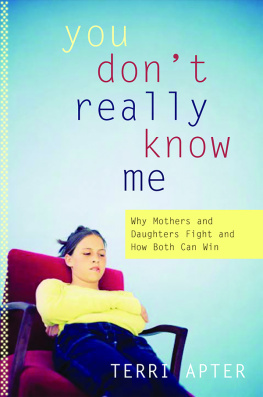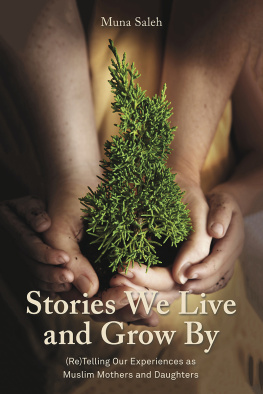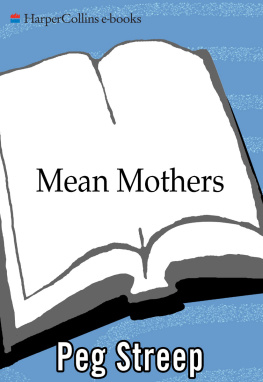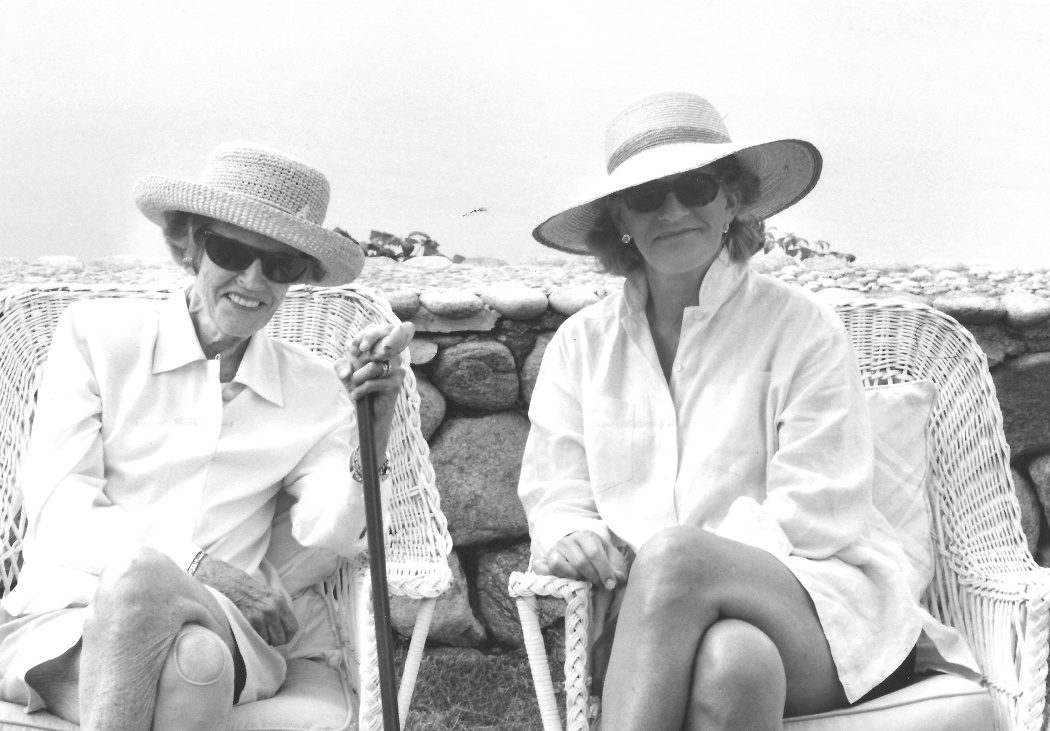
Models: Mother and I sat for the cover photograph during the summer of 1998. We played an old game, seeing which of us could stare longer without blinking. I thought Id done pretty well, but on the contact sheets there were a lot of pictures of me with my eyes closed. When the cover was shot, Ellen Warner asked us to turn our chairs around and took a roll of us facing her. This is a frame from that roll. Photograph by Ellen Warner.
The Train
This was not a dream.
On a quiet summer afternoon, just before my mother turned eighty, she and I were walking across the railroad tracks. Mother was leaning on her cane with one hand and holding my hand with the other, while I tried to restrain our two small dogs, who were tugging on their leashes.
Mother and I and the dogs crossed the southbound track on the cement path near the passenger station, paused between the tracks, and then moved onto the northbound roadway. This was pretty much like crossing a two-lane street on a green light. Then the gate swung down, and the bell began to clang.
Mother, I said, the train is coming. Can you go a little faster?
I cant, she said, and halted.
I looked south to see how much time we had, and saw a headlight as the train came around the bend. It was still far enough away so we would be fine if we kept walking, but Mother had frozen in fear. She tried to take a step, and then she fell.
The engineer was blowing the horn, the train was looming, Mother was on her knees on the tracks-and I was standing there, holding the dogs.
We were lucky that afternoon: a man on the platform ran out and grabbed my mother under one elbow; I took her other elbow, and we carried her to safety, as the train-a freight, which was not scheduled to stop at that station-moved on past.
Our rescuer helped us to the stationhouse and Mother sat on a bench and lit a cigarette. Her hand trembled on the lighter; the cigarette trembled in her mouth.
What happened to you? I asked her.
I panicked, she said. Im sorry.
Mother didnt like talking about the train episode, and I was reluctant to write about it,. What happened that afternoon reminded us both that Mother was getting more frail, and neither she nor I liked to think about that. But the truth is that aging can make even ordinary terrain precarious. We were now navigating that territory together.
What was an almost-eighty-year-old woman doing on the train tracks?
My mother and I had rented a house together for July and August on a small island, a ferry ride away from the New England coast. The dock is on one side of the railroad tracks; the town is on the other. We had arrived at the ferry an hour and a half before it was scheduled to leave for the island because Mother, with two weekened knees and a tendency to get dizzy, liked to give herself plenty of time to get where she was going. Enough time, that day, so we had decided to walk across the tracks to have lunch in town.
The train episode was not the only time I failed to understand how the accompaniments of age changed my mothers ability to live as she once did. When I invited Mother to share a house with me and my children, Alex and Hillary, who were then in their twenties, I didnt spend much time considering how our three-generation household might play out when we lived together for two months. Certainly, I knew that my summer would be full. I had this book to write, magazine deadlines, and because I had been going to the island for a long time, many friends there. I did wonder, briefly, what Mother would do in a place where she knew few people and couldnt drive or walk without a companion. But then I told myself that she would be happier in the country with her family than in a city apartment, alone with her dog.
Mother was happier with us. But while I loved my mother and enjoyed her company-and I liked the idea of being a good daughter-my sense of responsibility to her and my involvement with work were constantly crashing into each other. Work often won. The children were busy, too. Alex, who is an artist, was preparing for a show, and he had set up a studio where he painted most days, and often late into the night. Hillary was working in Washington and only spent a few weekends with us; when she was there, she was usually out with her friends.
Mother, by contrast, didnt have much to occupy her. She read considerably less than she once had; when I asked her what she was doing, as she sat quietly on the back porch for hours, she said, Thinking.
I felt that I should be better company. Dont the days seem long? I asked her, guiltily.
No, she said. Im not your guest. You dont have to entertain me.
That seemed to be true. Evidently, she could entertain herself. I still felt guilty.
Often, of course, Mother and I had wonderful, memorably cozy times together. When the summer was over and we looked back on it, we both recalled with particular fondness the ritual we developed in the evenings, before bedtime. First, Alex and I walked the dogs through the quiet village. Then he went back to his studio, and Mother and I composed ourselves on the living room sofa with cups of tea and our dogs, and chatted. Those evenings reminded me of my mothers maxim, Never go to bed angry, but we were not making up after an argument-we never really argued. Rather, we resolved each day, putting it away, getting ready for the next.
The house feels alive, Mother said to me one weekend, when Alex and Hillary had packed every bed with their friends.
None of them treats me as though Im old, she added. And then she raised the one real disagreement we had that summer. Its just your book thats making me old, she said.
Mother would surely have preferred me to write a book about any other stage of life (sometimes I felt the same way), but it was because her aging was weighing on both of us that I wanted to write this book.
The Sandwich Generation
Good Daughters is not really about me and my mother, except in the sense that we are part of a unique cohort. Our mothers are the first generation in history in which many women can expect to live beyond seventy. Only one in twenty-five Americans was older than sixty-five in 1900;1 but in 2012 the 40.3 million elderly account for one in eight Americans.2 That is not because there are fewer people in the middle years-the baby boomers still represent the largest group in the population, but because Americans are living longer, and there are many more elderly than ever before.

